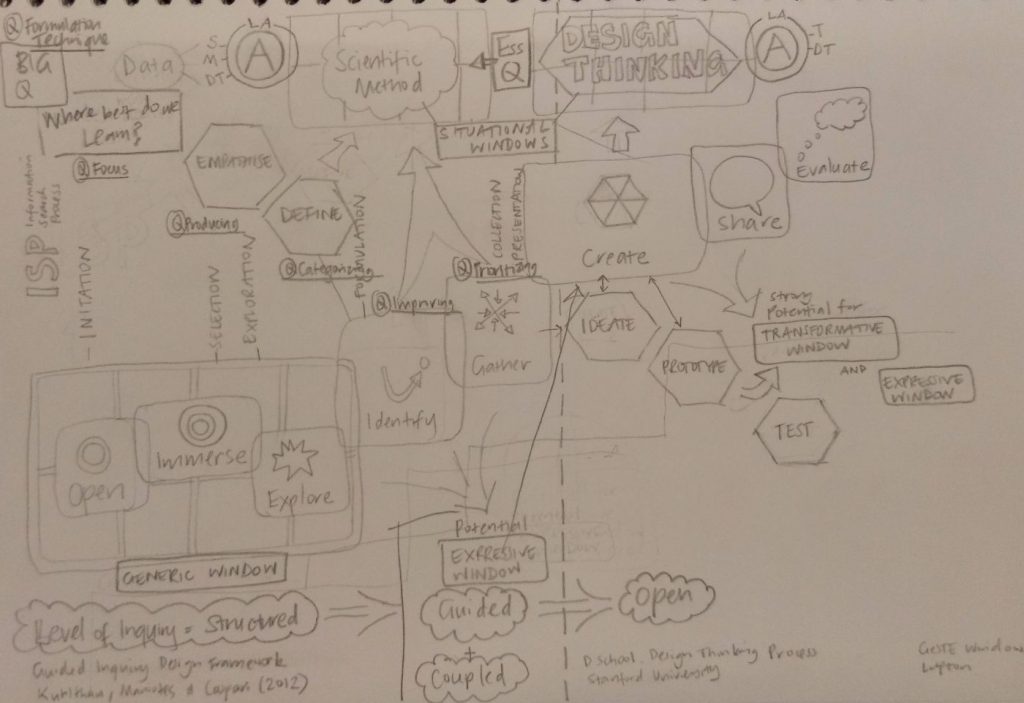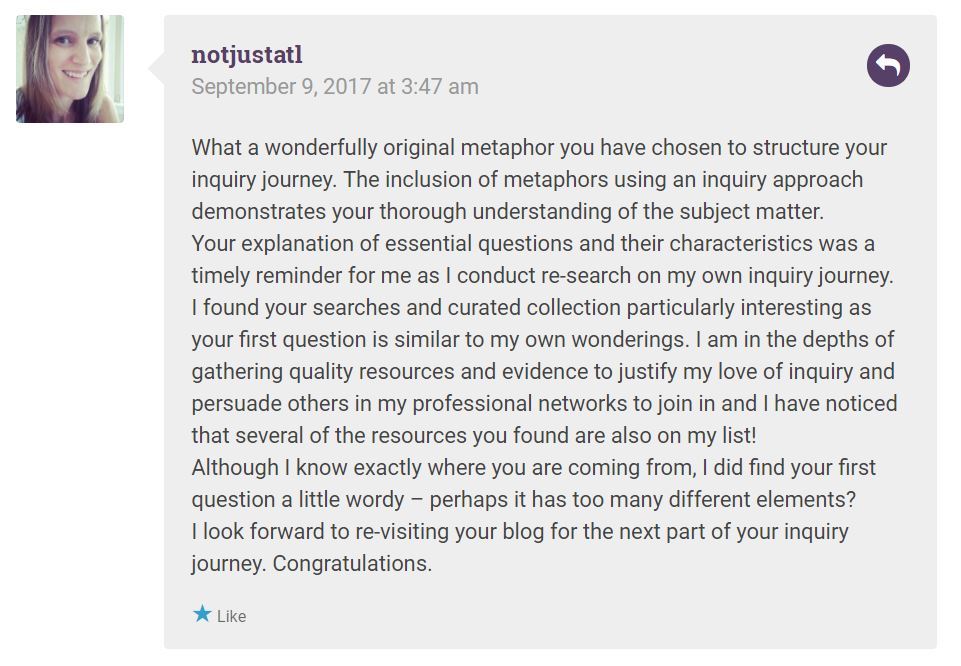I am a Teacher-librarian (TL) and eLearning coach in a mid-sized, State primary school in Brisbane, Australia. I am fairly new to teacher-librarianship, nearing the end of my second year in the role. As a primary school classroom teacher (for the 10 years prior to my TL job) I gained experience teaching using an inquiry approach and see great value in its implementation.
I first encountered inquiry learning when I took on a teaching role at an International school in Belgium. I was fortunate to be provided with many hours of professional development and was surrounded by excellent mentors. I later taught for several years at an Australian school using the same internationally recognised curriculum framework (IB-PYP), underpinned by inquiry learning.
I believe, like an electrical circuit lighting up a bulb, inquiry learning helps students make strong connections that result in deeper understandings, often referred to as ‘lightbulb moments’.
Although I personally believe inquiry learning is an effective approach to teaching and learning, I have heard of some negative (and neutral) findings about it. On occasion, I have had colleagues and administrative staff query my enthusiasm for the approach or refer to it as the ‘latest fad’ or ‘same stuff, different name’. Through these interactions, I have become increasingly aware of my lack of scholarly evidence for my views around inquiry learning, so have come to the conclusion that this is the perfect starting place for my own inquiry learning journey.
All inquiry must begin with questioning…this is the power source…
My first question about inquiry learning is: What evidence is there to support the effectiveness of Inquiry Learning as a pedagogical framework?
Although I have experience with Inquiry Learning as a classroom teacher, I have limited experience and knowledge about implementing an inquiry approach in a library setting. It is a professional goal to ensure that my library is not just a storage facility for resources, but an environment in which students are able to construct knowledge and develop deeper understandings. Therefore, my second question is: How can Inquiry Learning be implemented meaningfully in a library context?
As I continually develop the breadth of my current role in the school as TL and eLearning coach, it has become apparent that teachers are generally willing to commit to improving their practice, but require quality information and guidance to prevent early ‘failures’ becoming insurmountable barriers to change. A number of Learning Areas and General Capabilities in the Australian Curriculum state that students must develop inquiry skills. However, demanding that teachers use an inquiry approach without any prior experience (on the part of teachers and students) seems both unfair and unwise. This leads onto my third inquiry question: What skills are required for students to engage in learning using an Inquiry approach?
Time to get the inquiry electrons moving by Connecting the search switch.







